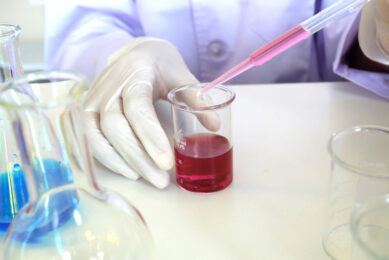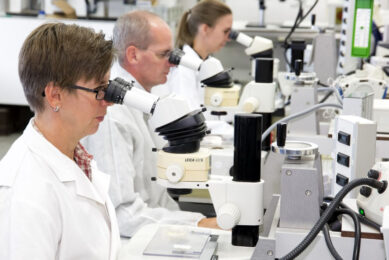16th WVPA Congress: Healthy poultry for safe food
Poultry will remain an important food source for the growing world population in coming decades. According to Prof. Dr. H.M. Hafez, president of the World Veterinary Poultry Association (WVPA), this demands high health standards. “In view of all the challenges and opportunities for consumers and producers in this global market, the future focus should be for better poultry health and safe food. Prevention, rather than cure, should be a new health strategy.”
By Ad Bal
The WVPA held its biennial congress in Marrakech, Morocco, from 8-12 November, in conjunction with celebrations of its 50th anniversary. Some 1,400 poultry veterinarians from 87 countries around the world were present, and over 300 papers and posters were presented. In his opening speech to the congress, Prof. Hafez referred to the goals and achievements of the association since its inception 50 years ago, but also looked ahead.
“During the past 50 years the productivity of the poultry industry has increased remarkably whereas the cost of food has continued to fall. The veterinary medical profession has contributed to this success through basic and applied research related to poultry health, including the development of effective diagnostic tools, vaccines, and drugs. Beyond the traditional services, poultry veterinarians have developed sophisticated on-farm programmes that focus on increasing profitability by eliminating sub-clinical disorders, maintaining flock health, and promoting higher levels of performance while being regardful of animal welfare,” said Prof. Hafez.
“I predict that the improvement of production methods will be the primary target for research during the next few years. I also believe that in addition to the existing challenges and problems, new ones will appear and will need to be addressed effectively and in a timely manner,” he added.
Prof. Hafez based his views on predictions about the growing world population and food production. “The FAO recently estimated that one billion people suffer from hunger, and according to the United Nations World Population Prospects more than nine billion people will live on our planet in 2050. Most of this growth will take place in what are currently developing countries, which is where more than 80% of all the people on earth live, and where an inadequate food supply is a common occurrence. In addition, land for fuel purposes is needed, meaning that land available for food grains and animal feed will decrease. This will undoubtedly lead to a considerable increase in the cost of animal feed. Moreover, water shortage is endangering agriculture, particularly in the southern hemisphere. Together, these complex factors are creating major challenges for sustainable agriculture.”
Increasing risks
According to Prof. Hafez, strong global competition and varying production costs in various regions will lead to an increase in the global movement of poultry and poultry products. This, however, increases the risk of introducing diseases to areas that are now considered to be free from such diseases. “Poultry diseases will remain a major challenge to the industry. We have to remember that in the highly interconnected ‘global village’ of our time, a problem in one country can quickly become a problem in all corners of the world. In the future, global cooperation and trade required from governments to harmonise existing legislation relating to trade, animal disease control, animal nutrition, as well as the licensing of drugs and vaccines for veterinary use. A good example is Avian Influenza. Although this is currently still a problem in some countries, we should always keep in mind that several other infectious diseases continue to cause tremendous increase in production cost due to mortality, medication, vaccination and poor productivity. It is also good to recognize that various other diseases still cause economic problems worldwide and we have to look for better approaches to control them.”
Safe food
Consumers are focused on food safety, and their expectations worldwide will continue to be a challenge. In addition, the majority of the citizens in developed countries, especially in the EU, are in favour of better living conditions for farm animals and a corresponding labelling of products. They expect more from livestock farming than merely the production of foodstuffs, and demand welfare-oriented animal husbandry in farming, as well as ecofriendly production methods. In order to prevent and control diseases on the entire planet, veterinarians must receive education and training that enables them to have a direct effect on the quality and performance of Veterinary Services. Also, in view of the ever-increasing threats that zoonotic diseases represent, it is of utmost importance that veterinarians receive appropriate training in this field and assume a leading role in developing control strategies of zoonotic diseases in cooperation with all relevant sectors, especially public health. Mobilisation of the international community and calling for international cooperation are essential for addressing these global challenges.
The 17th WVPA Conference will be held from 13-17 June, 2011, in Cancun, Mexico.













